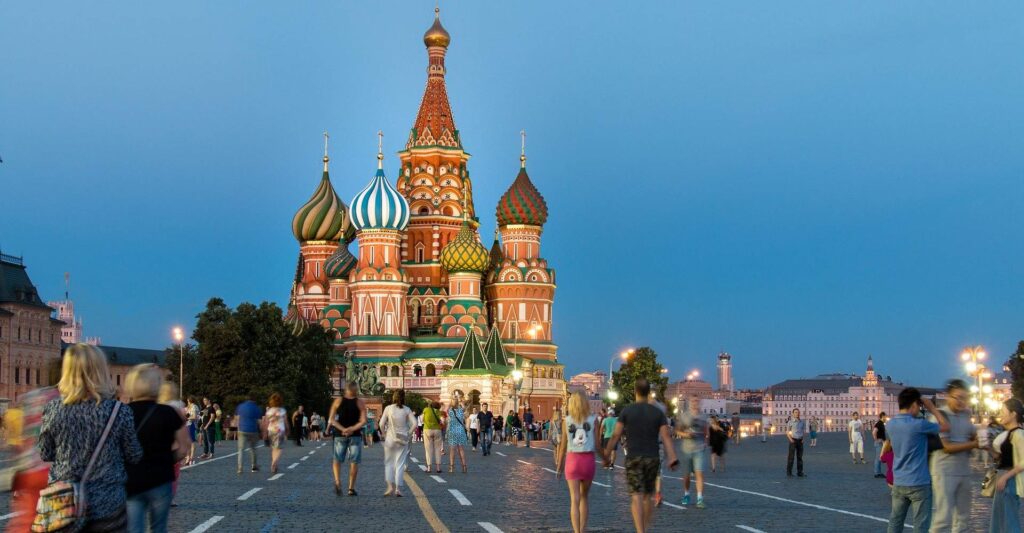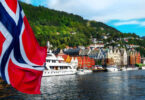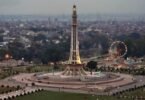Is it safe to travel to Russia? There is a high risk of terrorist attacks in Russia, with terrorist groups like al-Qaeda and Daesh-aligned groups actively calling for attacks. These attacks can occur without warning and target public places, including popular tourist sites, during seasonal, festive, or religious events. Past terrorist attacks in Moscow and St Petersburg have resulted in significant casualties, and Russia’s aviation has also been targeted.
The security situation in the country, particularly in regions bordering Ukraine, is volatile and may deteriorate further with little notice. Security incidents such as explosions and large fires have occurred in these areas. It is strongly advised not to travel to the Russia-Ukraine border or attempt to cross into Ukraine from Russia.

Russian authorities may exhibit a more negative attitude towards foreigners and enforce local laws arbitrarily. It is important to avoid participating in protests or demonstrations and refrain from publicly commenting on political developments.
This country has implemented different levels of security readiness, including a ‘medium response level’ and a ‘heightened preparedness’ level in specific regions. The rest of the country has a basic readiness level. Security measures and restrictions can be introduced abruptly, and there may be an increase in security personnel and installations.
If you are currently in Russia, it is recommended to leave immediately using the limited commercial options available or private means if it is safe to do so. Review your personal security plans and carefully consider the safest means and route for departure. It is essential to take responsibility for your own safety and that of your family. Ensure that your travel documents are up to date. If you choose to enter the country despite the risks, expect thorough security checks at the border, including questioning and inspections of electronic devices.
Please note that consular assistance from the Australian Government may be limited in Russia. Evacuation from Russia by the Australian Government is unlikely. If you have significant concerns for your well-being or that of another Australian citizen, contact the Consular Emergency Centre on 1300 555 135 if you are in Australia or +61 2 6261 3305 if you are outside of Australia. If you are in Russia, register with the Department of Foreign Affairs and Trade’s registration portal for Australian citizens for further assistance.
Safety measures if you intend traveling to Russia
Due to the security environment and ongoing military conflict with Ukraine, it is strongly advised not to travel. The risk of terrorist attacks is very high, with groups like al-Qaeda and Daesh-aligned organizations actively calling for attacks. These attacks can occur without warning, particularly during seasonal, festive, or religious events, targeting public places and popular tourist sites. Past terrorist attacks in Moscow and St Petersburg have resulted in significant casualties, and the aviation has also been targeted. The North Caucasus region and the Georgia-Russia border area are particularly susceptible to attacks, including tourist spots and transportation facilities. It is essential to remain alert to potential threats and have a clear exit plan in place.
In addition to the security risks, there are limited transportation options, restrictions on financial transactions, and potential shortages of essential products and services.
The security situation, including at the Russia-Ukraine border, may deteriorate further with little warning, as military action is ongoing in Ukraine. Security incidents, such as explosions and large fires, frequently occur in regions of Russia bordering Ukraine, including Belgorod, Bryansk, Kursk, and others. Travel to the Russia-Ukraine border or attempting to cross into Ukraine from Russia should be avoided.
The Russian government has implemented a ‘medium response level’ in several regions, such as Krasnodar, Belgorod, Bryansk, Voronezh, Kursk, and Rostov. The rest of the Central and Southern Federal districts are under a ‘heightened preparedness level,’ while the remaining parts of the country have a basic readiness level. There may be an increase in security personnel and installations, and various security measures or restrictions could be introduced with little notice. It is important to monitor the media for any developments.
If you are currently in Russia, it is strongly recommended to leave immediately, utilizing the limited commercial options available or private means if it is safe to do so. Before entering another destination, ensure you are aware of the entry requirements. The security situation in the country could further deteriorate unexpectedly. If you choose to remain in Russia, thoroughly review your personal security plans and understand that you are responsible for your own safety and the safety of your family. It is important not to rely on the Australian Government for assistance in leaving the country.
Foreigners in the country may face a more negative attitude from Russian authorities due to perceived support for Ukraine and sanctions on Russia. Non-participating bystanders have faced scrutiny from security forces and have been detained. It is crucial to remain vigilant, avoid protests or demonstrations, and refrain from making public comments on political developments.
If you have significant concerns for your well-being or that of another Australian citizen, contact the Consular Emergency Centre at 1300 555 135 (within Australia) or +61 2 6261 3305 (outside Australia).
If you are in the country, register your whereabouts on the Department of Foreign Affairs and Trade’s registration portal for Australian citizens in Russia. Keep your registration details up to date in case there is a need for contact. Continue to follow the advice provided on the Smartraveller website.






